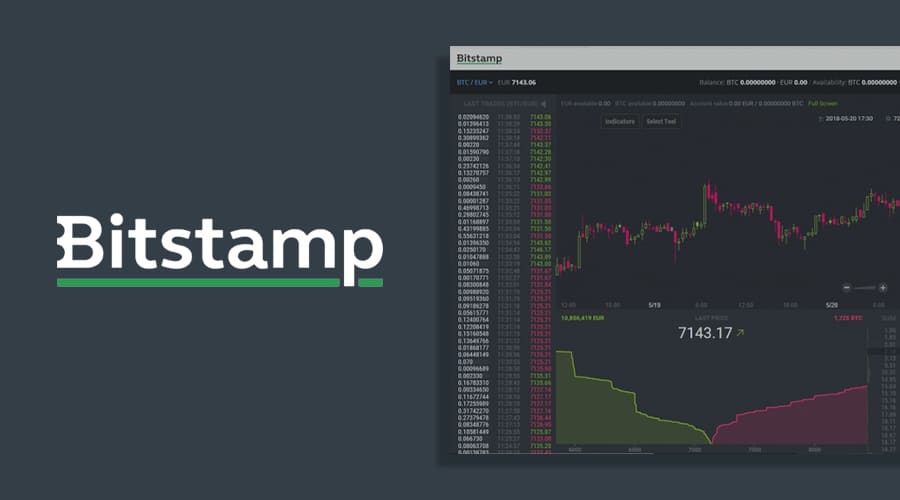Bitstamp Implements New KYC Rules for Netherlands Users: A Step Toward Compliance
Bitstamp, one of the world’s largest cryptocurrency exchanges, has introduced new Know-Your-Customer (KYC) requirements for its users in the Netherlands. Effective January 15, Netherlands-based users must provide proof of wallet ownership before withdrawing crypto to external wallets.
This policy aligns with Dutch anti-money laundering (AML) regulations but raises questions about privacy and the future of cryptocurrency regulations worldwide.
Understanding Bitstamp’s New KYC Policy
What Does the Policy Entail?
Under the new rules:
- Wallet Whitelisting
- Users must whitelist external wallets by providing wallet addresses and photographic evidence of ownership.
- Mandatory Proof
- Documentation is required to prove the user owns the third-party wallet.
- Scope of Impact
- The policy currently applies only to users in the Netherlands.
Why Is This Policy Significant?
Previously, wallet whitelisting was an optional security feature. Now, it is mandatory for Dutch users, reflecting stricter regulatory compliance requirements.
Regulatory Background: Dutch AML Regulations
The new KYC policy is in response to anti-money laundering regulations introduced by Dutch authorities in November 2019 and enacted into law a year later.
Key Points of Dutch AML Regulations
- Focus on Wallet Verification
- Exchanges must verify ownership of external wallets to prevent illicit activities.
- Precedents
- Smaller exchanges like Bitonic were among the first to adopt similar rules.
- Global Influence
- The regulations echo global efforts to enhance compliance, such as those seen in the U.S. and other jurisdictions.
Bitstamp’s Role in the Crypto Ecosystem
As the 11th largest cryptocurrency exchange by trading volume, Bitstamp’s compliance sets a precedent for other major exchanges:
- Leadership in Regulation: Bitstamp is one of the first significant exchanges to adopt such strict withdrawal rules.
- Impact on Users: The policy could influence user behavior, pushing some toward decentralized or privacy-focused platforms.
Privacy vs. Regulation: The Ongoing Debate
Concerns Over Privacy
The new rules have raised concerns about increased surveillance and reduced privacy in the cryptocurrency sector:
- Enhanced Monitoring: KYC requirements allow for greater oversight of user transactions.
- Reduced Anonymity: Users must disclose personal information, potentially exposing them to risks.
Regulatory Compliance
While controversial, these measures aim to prevent illicit activities like money laundering and terrorism financing:
- AML Compliance: Ensures exchanges meet legal standards.
- Building Trust: Stricter regulations could attract institutional investors by reducing risks.
Comparisons to Global Policies
U.S. Regulations Under Scrutiny
In November, former U.S. Treasury Secretary Steve Mnuchin proposed similar rules for self-hosted crypto wallets, prompting widespread criticism:
- Coinbase CEO’s Concerns: Brian Armstrong criticized the proposal, citing its potential to stifle innovation and harm privacy.
- Future Under Janet Yellen: Lawyer Jake Chervinsky argues that Mnuchin’s policy has “precisely zero chance” of being enacted under Yellen’s leadership.
European Union’s Approach
The EU has also tightened AML and KYC requirements for crypto exchanges, aligning with global trends toward increased regulation.
How Users Can Comply with Bitstamp’s New Policy
Steps for Wallet Verification
- Provide Wallet Address
- Submit the external wallet address where funds will be withdrawn.
- Submit Proof of Ownership
- Upload photographic evidence showing you own the wallet (e.g., screenshots of wallet settings).
- Whitelist the Wallet
- Complete the whitelisting process on the Bitstamp platform.
Tips for Users
- Stay Informed: Keep track of regulatory changes affecting your region.
- Use Secure Wallets: Ensure your external wallets are reputable and secure.
- Consider Alternatives: Explore decentralized platforms if privacy is a primary concern.
Potential Impact on the Crypto Sector
For Exchanges
- Increased Costs: Compliance with strict regulations may require additional resources.
- Competitive Advantage: Exchanges that comply early may gain trust and attract institutional clients.
For Users
- Reduced Privacy: KYC rules may deter privacy-conscious users.
- Greater Security: Enhanced regulations could lead to safer transactions.
Conclusion: Balancing Privacy and Compliance
Bitstamp’s new KYC policy for Netherlands users highlights the delicate balance between regulatory compliance and user privacy in the cryptocurrency industry. While the policy aligns with Dutch AML regulations, it has sparked debates about the broader implications for privacy and innovation.
As global regulators continue to tighten their grip on the crypto sector, exchanges must navigate these changes carefully to maintain user trust and support the growth of the digital economy.
To learn more about the innovative startups shaping the future of the crypto industry, explore our article on latest news, where we delve into the most promising ventures and their potential to disrupt traditional industries.
Disclaimer: The information provided is not trading advice, Bitcoinworld.co.in holds no liability for any investments made based on the information provided on this page. We strongly recommend independent research and/or consultation with a qualified professional before making any investment decisions.




